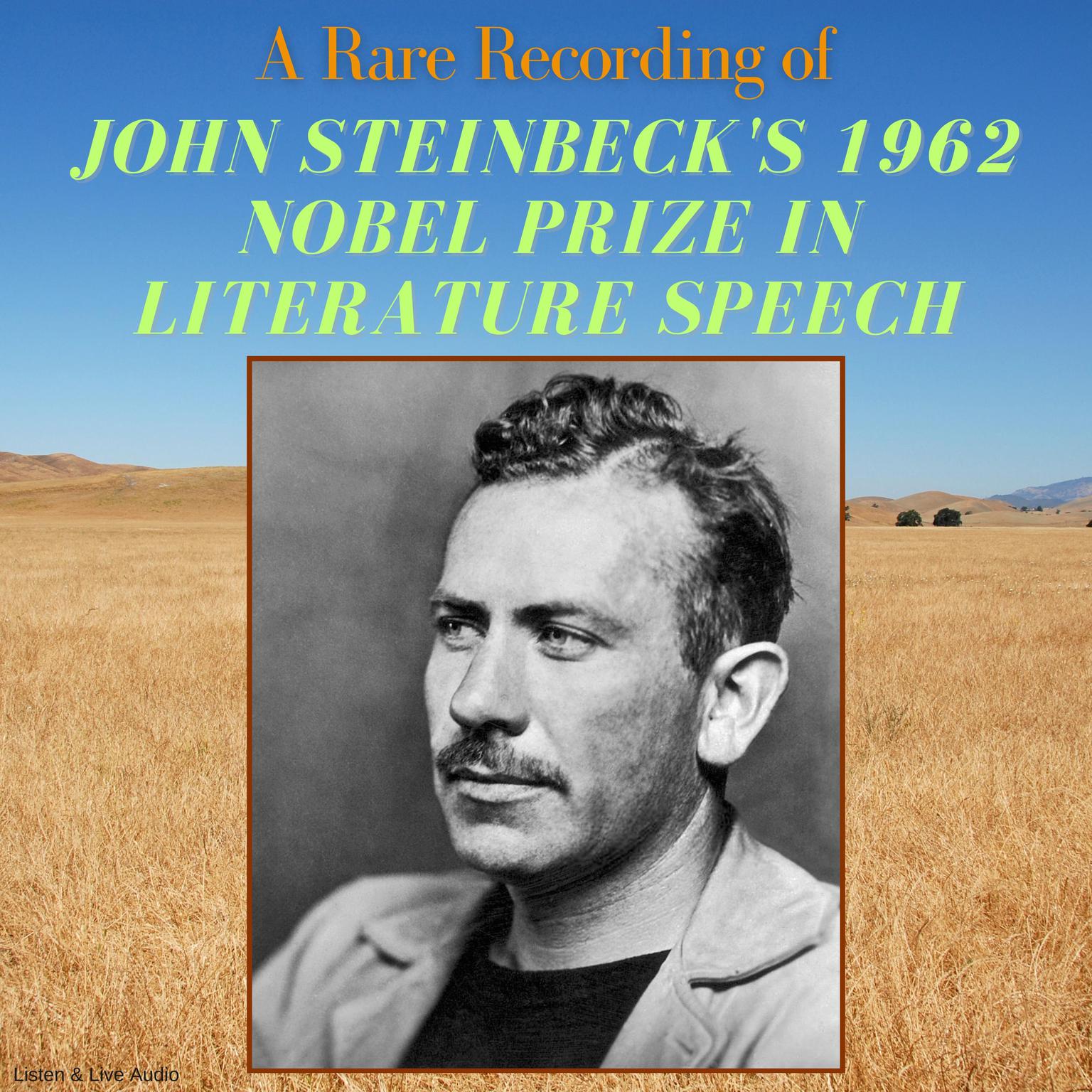 Play Audiobook Sample
Play Audiobook Sample
A Rare Recording of John Steinbeck's 1962 Nobel Prize in Literature Speech Audiobook
 Play Audiobook Sample
Play Audiobook Sample
Quick Stats About this Audiobook
Total Audiobook Chapters:
Longest Chapter Length:
Shortest Chapter Length:
Average Chapter Length:
Audiobooks by this Author:
Publisher Description
John Ernst Steinbeck (February 27, 1902 - December 20, 1968), born in Salinas, CA, was an American writer who won the 1962 Nobel Prize in Literature "for his realistic and imaginative writings, combining as they do sympathetic humor and keen social perception." His writings include the novels Of Mice and Men (1937), the Pulitzer Prize–winning The Grapes of Wrath (1939), and East of Eden (1952). The following is Steinbeck's speech at the Nobel Banquet at the City Hall in Stockholm, December 10, 1962.
Download and start listening now!
A Rare Recording of John Steinbeck's 1962 Nobel Prize in Literature Speech Listener Reviews
Be the first to write a review about this audiobook!
About John Steinbeck
John Steinbeck (1902–1968) remains one of the quintessential writers of American literature. Born in Salinas, California, Steinbeck attended Stanford University before working at a series of mostly blue-collar jobs and embarking on his literary career. Profoundly committed to social progress, he used his writing to raise issues of labor exploitation and the plight of the common man, penning some of the greatest American novels of the twentieth century and winning such prestigious awards as the Pulitzer Prize and the National Book Award. He received the Nobel Prize in 1962, “for his realistic and imaginative writings, combining as they do sympathetic humor and keen social perception.” He wrote more than twenty-five novels during his lifetime.























